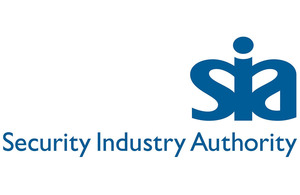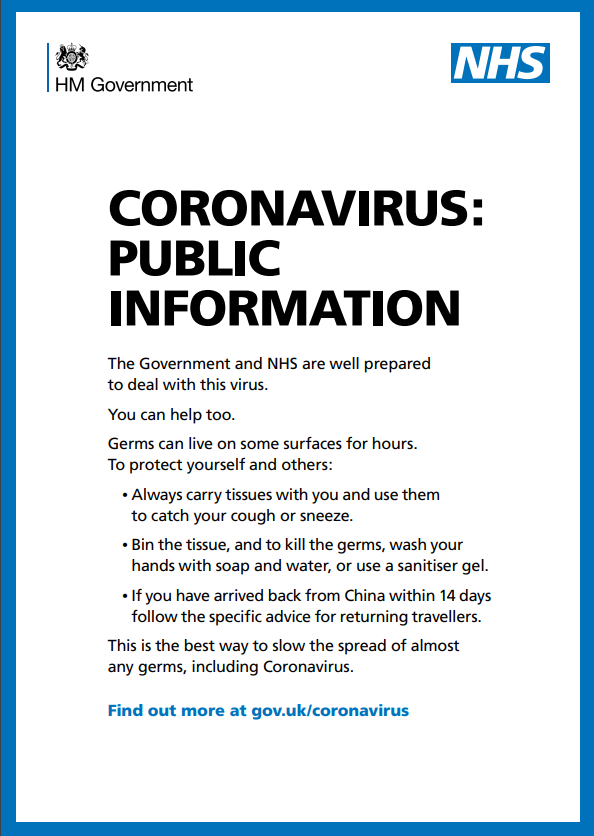
COVID-19 will be a feature of our lives for the foreseeable future, so we need to learn to live with it and manage the risk to ourselves and others.
The most important symptoms of COVID-19 are recent onset of any of the following:
- a new continuous cough
- a high temperature
- a loss of, or change in, your normal sense of taste or smell
The self-isolation advice for people with coronavirus (COVID-19) has changed. It is now possible to end self-isolation after 5 full days if you have 2 negative LFD tests taken on consecutive days. The first LFD test should not be taken before the fifth day after your symptoms started (or the day your test was taken if you did not have symptoms). The self-isolation period remains 10 full days for those without negative results from 2 LFDtests taken a day apart.
The main way of spreading COVID-19 is through close contact with an infected person. When someone with COVID-19 breathes, speaks, coughs or sneezes, they release particles containing the virus that causes COVID-19. These particles can be breathed in by another person. The particles can also land on surfaces and be passed from person to person via touch.
In general, the risk of catching or passing on COVID-19 is higher:
- in crowded spaces, where there are more people who might be infectious
- in enclosed indoor spaces where there is limited fresh air
Some activities can also increase the risk of catching or passing on COVID-19. This happens where people are doing activities which generate more particles as they breathe heavily, such as singing, dancing, exercising or raising their voices.
For the most current information:
https://coronavirus.data.gov.uk
https://www.nhs.uk/conditions/coronavirus-covid-19/
SIA Guidance | Covid-19 and the private security industry
The SIA has published guidance on Covid-19 and the private security industry, You can view this here:



-logo-who.png?sfvrsn=b15e3742_18)

COVID-19 Risk Assessment
| POTENTIAL HAZARDS |
PEOPLE AFFECTED People who may be affected |
EXSISTING CONTROLS Details of controls that are in place to manage and control the risk posed by the hazard |
ADDITIONAL MEASURES Details of controls or action required to reduce the risk to a tolerable level |
|
Spread of Covid-19 Coronavirus
|
Staff
Visitors and Customers to your premises
Cleaners
Contractors
Anyone else who physically comes in contact with you in relation to your business |
Management Information on Covid Control measure must be communicated to all staff, visitors and customers. Staff (and others) should be regularly reminded of the Covid control measures in place and the need to follow all of the relevant procedures. |
To help reduce the spread of coronavirus (COVID-19) reminding everyone of the public health advice - https://www.publichealth.hscni.net/news/covid-19-coronavirus Regular communications including short briefings to include Covid reminders. |
|
Hand Washing (For more information see - https://www.hse.gov.uk/coronavirus/cleaning/handwashing-using-hand-sanitiser.htm) Hand washing facilities with soap and water should already be in place. Additional facilities should be provided where necessary to allow for easy and frequent hand washing. Provide information to staff on hand washing (e.g. https://www.nhs.uk/live-well/healthy-body/best-way-to-wash-your-hands/) Provide materials to allow drying of hands with disposable paper towels. Pedal bins or opened topped bins will be used to reduce touch points. Handwashing facilities will be cleaned, bins will be emptied and soap, paper towels and hand sanitiser replenished regularly. Gel sanitisers should be provided in any area where washing facilities are not readily available |
Employees to be reminded on a regular basis to wash their hands for 20 seconds with water and soap and the importance of proper drying with disposable towels Staff should also be reminded to catch coughs and sneezes in tissues – Follow Catch it, Bin it, Kill it and to avoid touching face, eyes, nose or mouth with unclean hands. Tissues will be made available throughout the workplace. Regular checks should be carried out by line managers to ensure that the necessary procedures are being followed. 70% Alcohol based hand sanitisers are flammable and need to be used and stored correctly to reduce fire risks.
|
|
Spread of COVID-19 |
Staff
Visitors and Customers to your premises
Cleaners
Contractors
Anyone else who physically comes in contact with you in relation to your business |
Persons with positive COVID-19 tests or persons informed they are close contacts Staff to be instructed not to attend work if they have developed COVID Symptoms or have been informed that they are a close contact of a COVID Positive individual in line with PHA guidance. Line managers will maintain regular contact with staff members during this time. |
Regular reminders to be issued to staff on symptoms and the actions to take.
|
|
Persons with symptoms of Covid-19 at work If anyone becomes unwell with a new continuous cough, loss of taste or small or a high temperature in the workplace they will be sent home and advised to follow the stay at home guidance. Put in place arrangements to clean if someone develops symptoms of coronavirus in work. If advised that a member of staff or public has developed Covid-19 and were recently on your premises (or where a member of staff has visited other work place premises or domestic premises), management should contact the Public Health Authority to discuss the case, identify people who have been in contact with them and will take advice on any actions or precautions that should be taken. https://www.publichealth.hscni.net/ |
For more information on decontamination see - https://www.gov.uk/government/publications/covid-19-decontamination-in-non-healthcare-settings/covid-19-decontamination-in-non-healthcare-settings
|
|
Spread of COVID-19 |
Staff
Visitors and Customers to your premises
Cleaners
Contractors
Anyone else who physically comes in contact with you in relation to your business |
Social Distancing Social Distancing –Reducing the number of persons in any work area to comply with the 2-metre (6.5 foot) gap recommended by the Public Health Agency (see https://www.publichealth.hscni.net/news/covid-19-coronavirus Measures may include: limiting the number of people in rooms so that social distancing rules can be met, e.g. stagger breaks, have maximum occupancy numbers for meeting rooms Reorganise facilities in communal areas such as spacing out tables in meeting rooms, canteens etc so social distancing rules can be met Where possible put in place physical barriers (e.g. Perspex) to reduce contact in areas of high interaction. Increase the use of online meeting facilities, even for people working in the same building, to reduce the number of people moving around Put in place one-way systems in corridors or regularly used pedestrian traffic routes to manage the flow of people moving around workplaces and to allow social distancing rules to be met Leave non-fire doors open to reduce the amount of contact with doors and also potentially improve workplace ventilation Taking steps to review work schedules including start & finish times/shift patterns, working from home etc. to reduce number of workers on site at any one time. Also relocating workers to other tasks. Provide washing facilities and hand sanitiser at accessible places near to where people will have contact with high traffic communal areas, e.g. sanitiser/washing facilities at the entrance/exit to canteens to maintain social distancing. Where it is impossible to maintain 2m Social Distancing additional controls will be implemented including limiting the amount of time people spend on the task, placing workers back-to-back or side-by-side rather than face-to-face when working, improving ventilation, increase in hand washing. (https://www.hse.gov.uk/coronavirus/social-distancing/unable-to-social-distance.htm) Staff will not work within 1m of each other at any time. (For close contact services refer to specific sector guidance) NB: Face coverings and visors are not a sufficient measure by themselves to allow for working within 2m of other persons and must be supplemented by other mitigations. |
Staff to be reminded on a daily basis of the importance of social distancing both in the workplace and outside of it. Management checks will be made regularly to ensure social distancing is adhered to within the workplace and in common areas. Regular reminders to staff to ensure they are clear on the rules when using common areas and workstations. Discuss with workers who live and/or travel to work together to agree how to prevent the risks of spreading coronavirus
|

